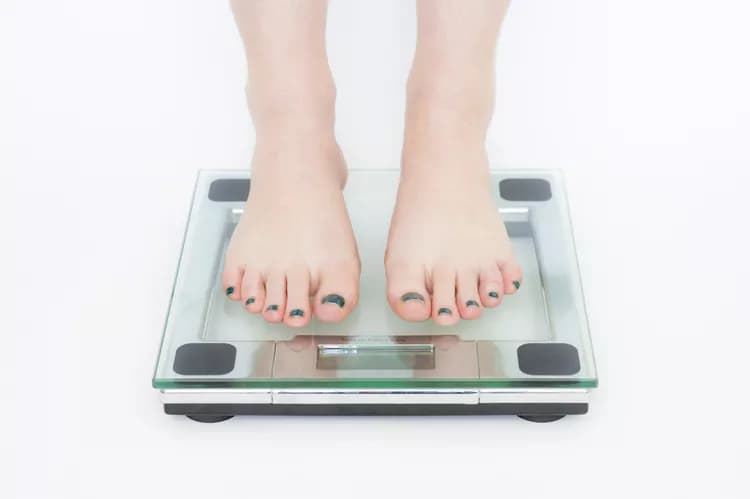
College Freshmen Who Weighed Themselves Daily Lost Body Fat
Want to ward off the dreaded "Freshman 15?" Try putting a scale in your dorm room.
A new study by researchers at Drexel University and the University of Pennsylvania found that female college-aged students who reported at least one period of daily self-weighing over a two-year study saw a drop in their body mass index (BMI). Those who did not weigh themselves daily saw no decline.
The study, published in the Journal of Behavioral Medicine, enrolled 294 women of varying weights and measured their body fat percentages at baseline, six months and two years. BMI was determined by height and weight, and body fat percentage was measured with Dual-energy X-ray absorptiometry (DXA) scans. Participants also responded to questionnaires about their weighing habits.
Past studies have suggested that self-weighing can effectively prevent weight gain after initial weight loss for people with obesity. The Drexel and Penn researchers were interested in taking these studies a step further, to look at whether weighing yourself consistently could prevent weight gain for women who were not enrolled in a weight loss program.
They were particularly interested in studying college students -- of whom more than 70 percent gain weight during their first year, according to a 2009 study. Freshman weight gain, which averages four to eight pounds, is nearly six times greater than what the general population experiences.
The researchers were surprised to find that, on average, women who reported at least one period of daily self-weighing not only tended to avoid weight gain, but actually experienced some weight loss. They saw small, but significantly different changes in their BMI after two years, compared to the group who did not self-weigh daily, who saw little change in their BMI.
"The losses in BMI and body fat percentage were modest, but still significant, especially keeping in mind that these women were not part of a weight loss program. We did not expect that, in the absence of a weight loss intervention, folks would be losing weight," said Diane Rosenbaum, PhD, who completed the study while a postdoctoral research fellow at Drexel's College of Arts and Sciences and is now a psychologist at the University of Pennsylvania.
The team was also surprised to find that women in their study who weighed themselves daily had heavier BMIs and greater percent body fat at baseline than other participants. This contrasts with past data that found higher self-weighing frequency was associated with lower BMI.
Rosenbaum and her colleagues note that their study cannot say for certain that self-weighing is a directly linked to weight loss.
"It is possible that the relation between self-weighing and weight might be driven by scale avoidance among those who experienced weight gain," they write. And further research is needed to better understand the relationship.
They conclude that daily self-weighing appears to be an important behavior that influences weight and body fat trajectories, and the habit could prevent unwanted weight gain, even for those without a weight loss history.
"Regularly weighing yourself can motivate you to engage in healthy eating and exercise behaviors, because it provides you with evidence that these behaviors are effective in helping you lose weight or prevent weight gain. Similarly, if you see weight gain on the scale, that information can motivate you to make a change," said Meghan Butryn, PhD, an associate professor in the College of Arts and Sciences at Drexel.
Materials provided by Drexel University. Note: Content may be edited for style and length.
Disclaimer: DoveMed is not responsible for the accuracy of the adapted version of news releases posted to DoveMed by contributing universities and institutions.
References:
Rosenbaum, D. L., Espel, H. M., Butryn, M. L., Zhang, F., & Lowe, M. R. (2017). Daily self-weighing and weight gain prevention: a longitudinal study of college-aged women. Journal of Behavioral Medicine, 1-8. DOI: 10.1007/s10865-017-9870-y
Related Articles
Test Your Knowledge
Asked by users
Related Centers
Related Specialties
Related Physicians
Related Procedures
Related Resources
Join DoveHubs
and connect with fellow professionals

0 Comments
Please log in to post a comment.